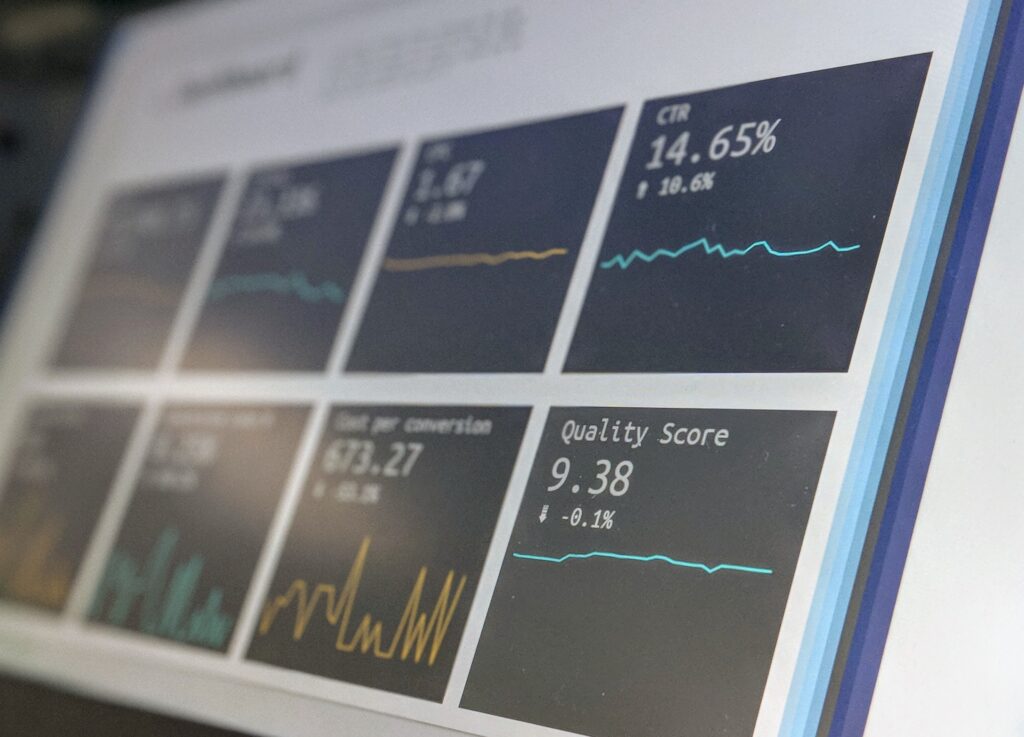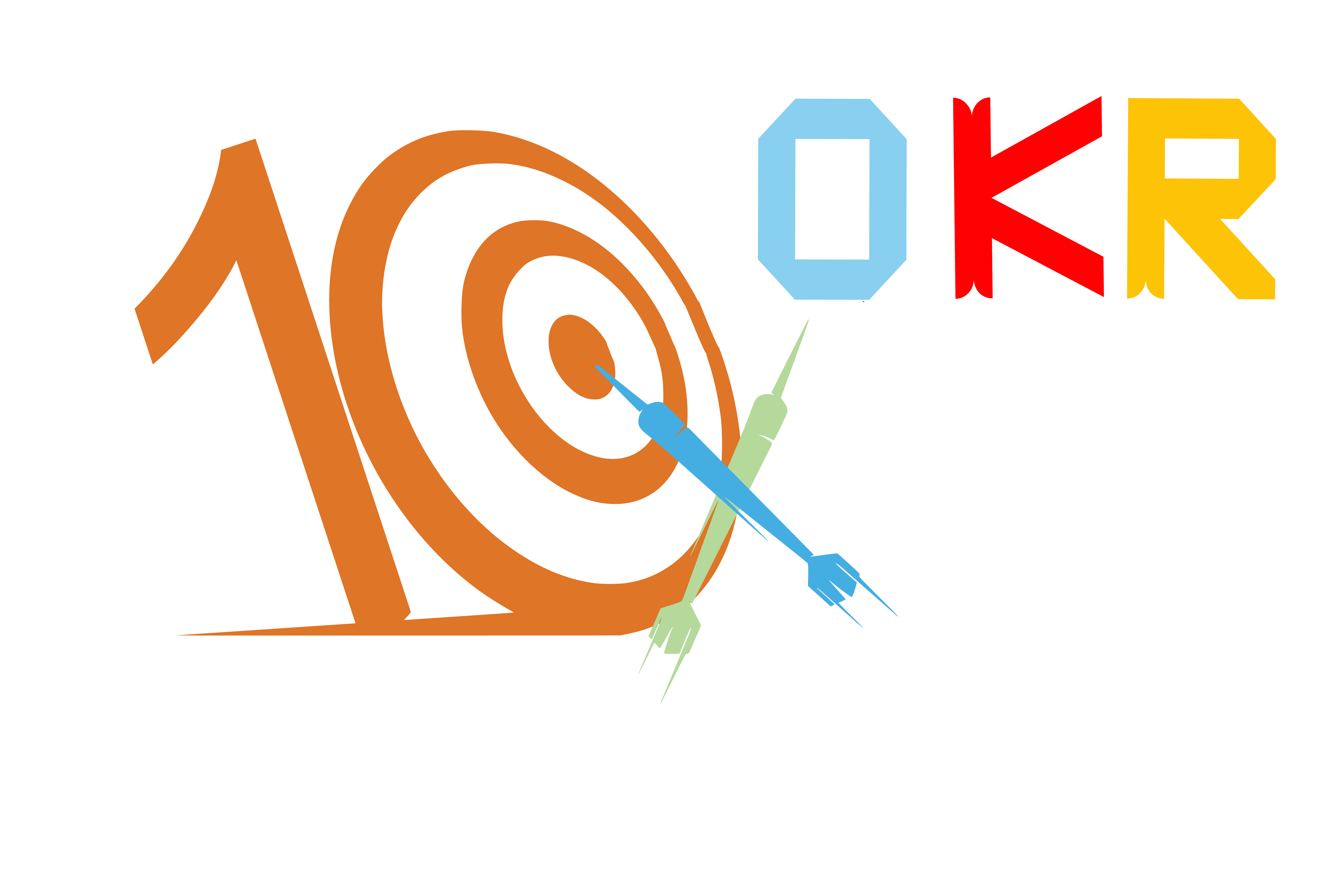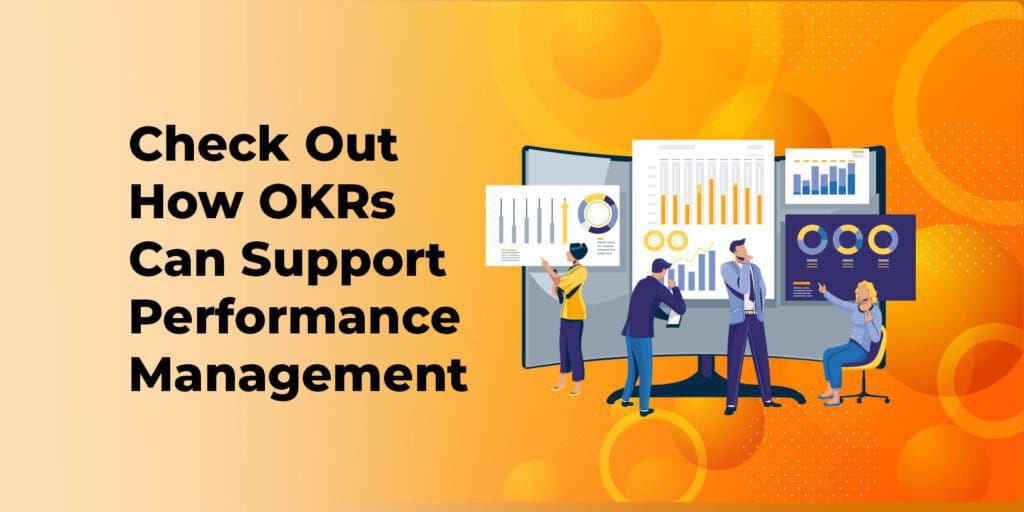Table of Contents
Check Out How OKRs Can Support Performance Management
Performance management is an integral part of any organisation’s success. It helps ensure employees meet their goals and objectives while providing feedback and guidance. But how can OKRs (Objectives and Key Results) help to improve performance management?
OKRs are a powerful tool for setting clear objectives and outcomes for employees and teams. They can be used to measure progress against key performance indicators and provide insight into areas where improvements need to be made.
By using OKRs, organisations can better understand the impact of their efforts on overall performance and make necessary adjustments accordingly. Furthermore, OKRs enable organisations to take a more strategic approach to performance management by helping them identify potential areas for improvement before they become issues.
The Benefits of Using OKR Software to Track Progress & Measure Results
The traditional performance management system has been around for years but needs to be updated. With the emergence of OKR software, companies can now track progress and measure results more accurately and efficiently.
Businesses can define specific goals and track their progress using the OKRs (Objectives and Key Results) framework. This software helps ensure everyone in the organisation is on the same page regarding their goals. It also helps managers keep track of their team’s performance and ensure everyone is working towards their objectives.
OKR software can set short-term and long-term goals, allowing for greater flexibility in goal setting. It also provides an easy way to evaluate employee performance so managers can promptly give feedback. With OKR software, companies can maximise their resources while achieving their desired results.
How to Create Effective OKRs to Align with Strategic Objectives?
Objectives and Key Results (OKRs) are an effective way to align team performance with strategic objectives. OKRs provide a framework for setting, tracking, and evaluating the progress of goals to achieve success. They are a key component of modern performance management and have proven more effective than traditional performance evaluations.
OKRs can help organisations align their teams’ goals with their overall strategy, enabling them to measure progress against objectives and key results as they progress. OKRs also provide visibility into how individual goals fit within the larger context of the organisation’s overall mission. With OKRs, teams can better understand what needs to be done to reach their desired outcomes while focusing on the long-term goal management strategy.
How Can OKRs Support Performance Management?
The powerful tool OKRs, or Objectives and Key Results, can help enterprise performance management. Setting OKRs involves:
- Defining clear and measurable objectives.
- Identifying key results that will demonstrate progress towards those objectives.
- Regularly tracking progress towards those results.
This process can be used to support performance evaluations in several ways.
Firstly, OKRs help ensure every employee has clear objectives aligned with the organisation’s goals. This alignment helps to focus employees’ efforts on the most important tasks and ensures that everyone is working towards the same objectives. This clarity of purpose makes performance evaluations more meaningful, as employees are evaluated based on their progress towards goals relevant to the organisation’s success.
Secondly, the use of OKRs allows for regular check-ins and progress updates. Managers and staff should often communicate to cross-check if everyone is on the same page and that any problems or challenges are resolved as soon as possible. Regular check-ins also help to ensure that employees receive feedback on their performance throughout the year rather than only during a formal performance evaluation.
Thirdly, the use of OKRs can support a culture of continuous improvement. By regularly setting and tracking objectives, employees are encouraged to identify areas where they can improve their skills and performance. This focus on continuous improvement can help drive innovation and growth within the organisation and improve performance evaluations over time.
Finally, using OKRs can support performance evaluations by providing a clear and objective measure of progress towards objectives. Rather than relying solely on subjective employee performance assessments, OKRs offer a data-driven approach to evaluating progress. This accurate measure of progress can ensure that performance evaluations are fair and consistent across the organisation.


Best Practices for Achieving Success with OKR Performance Management Systems
OKR (Objectives and Key Results) performance management systems can effectively drive focus, alignment, and accountability within an organisation. Here are some best practices for achieving success with OKR performance management systems:
1. Set Clear Objectives:
Clear objectives help provide direction and focus to your team. Ensure your goals are specific, measurable, achievable, relevant, and time-bound (SMART).
2. Align Objectives to Your Organisation’s Goals:
It is easier to ensure that everyone is working towards the same goals when your aims align with those of your organisation. This also helps with prioritisation and decision-making.
3. Use Metrics to Measure Progress:
Key results are the metrics that measure progress towards the objectives. Ensure that you are using relevant and meaningful metrics for your goals.
4. Continuously Track Progress:
Regular check-ins help to ensure that progress is being made towards the objectives. Make sure that you are tracking progress regularly and making adjustments as needed.
5. Foster Communication and Collaboration:
Communication and collaboration are crucial for achieving success with OKRs. Ensure that your team communicates regularly and that there is transparency in progress towards objectives.
6. Celebrate Success:
Celebrate every small victory along the way. Celebrating successes helps to motivate and reinforce the importance of the objectives.


7. Use OKRs for Professional Development:
OKRs can be used for professional development, providing a clear path for employees to grow and develop their skills.
By following these best practices, you can create a successful OKR performance management system that helps your team achieve their objectives and drives overall success within your organisation.
Wrapping Up
In conclusion, OKRs can be a powerful tool for supporting performance management in organisations. By aligning employee objectives with organisational goals, providing regular check-ins and progress updates, supporting a culture of continuous improvement, and providing an objective measure of progress, OKRs can help to ensure that performance evaluations are fair, consistent, and meaningful.



